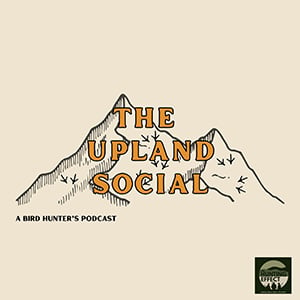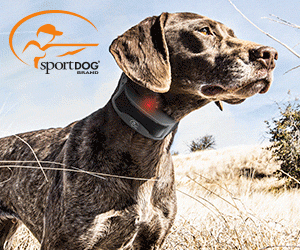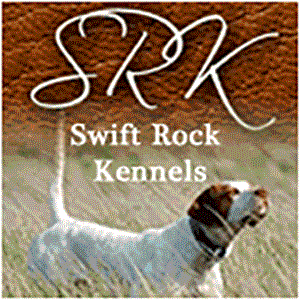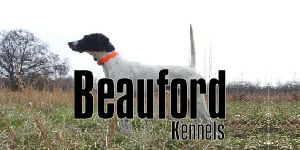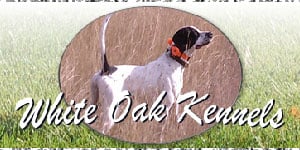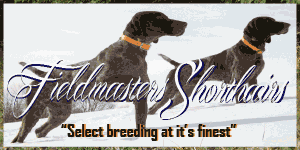An End and a Beginning
of field trial pointing dogs seldom earned more than a scratch-by living. It required training
grounds, owned, rented or borrowed, most often from a customer; horses; kennels; transport-
early stock-bed trucks, later goose neck trailers pulled by pickups, preferably duallys. Prices for
all, and for fuel, crept up, customers inevitably evaporated from multiple causes: loss of interest,
divorce, bankruptcy, illness, accident, a few from old age.
Some thought the quality of entries made the difference between economic success and
failure. In truth, quality of dog owners and their loyalty and dedication to the sport mattered
more. A trainer-handler with an understanding of dogs and horses, a strong work ethic, freedom
from substance abuse or a gambling habit, integrity and a love of the game and a tolerant spouse
was most likely to succeed or at least stay in the game. These things and one other: a good scout.
Until the early 1980s they were almost all black men. Then their profession disappeared,
replaced by a new system dictated by economics. Handlers discovered they could reduce payroll
by one person and horses bought and hauled by two or three by adopting the system, called
“helpin’ each other.” With it, two handlers agreed to scout for one another. They formed a team
and asked clubs to let them have their entries listed as handled by the pair so as not to be drawn
to compete against one another. In fact each had his own entries to handle with the other
scouting them, and vice versa.
For a few a spouse was the scout, some very skilled. Sherry Ray was the prime example.
She could ride the hide off a horse, find a dog and put it anywhere undetected. But she and
Harold Ray trained privately for the Smiths, not for the public, to the setters’ salvation.
***
The year was 1982. Buck Bain, for-the-public pointing dog trainer-handler on the all-age
circuit, and his long time black scout, Sam Blevins, were at their wits’ end. Buck was age fifty-
five, Sam sixty. They had been a team thirty years, enjoyed modest success, handled champions,
though never a National or National Free-For-All winner. They were not alone in that, few had.
The problem was economics. The costs of campaigning had escalated beyond their ability to
attract the patrons to pay it. What could they do?
Their solid reputations for integrity, ability to break a dog or a horse, absence of alcohol
problems, willingness to work, came to their rescue.
Frank Johnson of Boston had just inherited from his father William a quail plantation
outside Thomasville, Georgia. Frank was the fourth Johnson to own it. The first, also named
Frank, had been a Robber Baron of the Gilded Age, making fortunes in coal and shares traded in
the day’s stock market, luckily dodging the crashes and bad dips. That and not over spending
had kept the Johnsons rich through the succeeding generations, down to Frank, now age forty-
five and managing the family’s portfolio prudently. With his father’s death and thereby absence
from Three Pines Plantation, he would become a snowbird, spending fall and winter on Three
Pines in Georgia, summering at the family’s compound in coastal Maine, easy now that
everything was computerized and what work he did was doable from anywhere.
The manager of Three Pines had been discovered by Frank to be embezzling from
William and let go though not prosecuted. Frank decided to clean house at Three Pines and
install a new head dog trainer and hunting staff. Buck and Sam got hired. Though they had not
before worked on a quail plantation, they had trained many wagon and foot-hunting dogs and
retrievers for them and guided hunts over their own trial string for dog owners and others to help
make ends meet. They knew the job.
Hired during the Spring Shuffle in 1982, Buck and Sam found the wagon string at Three
Pines woefully lacking. They set about finding coming derbies and pups to develop before the
coming fall’s hunting season. July first they left for training grounds in North Dakota they had
long used while on the circuit. They had with them as helpers Frank Johnson’s two sons, age
fifteen and sixteen, students at prep schools in New England for Ivy League colleges and
universities. Frank sent them because of good memories of working for Three Pines’ dog trainer
on the prairie in summers when he was a teen. Also on the team was Sam’s nephew who had
gone to the prairies with Buck and Sam the previous two summers.
August first Sam’s nephew came to Sam one evening when the others in camp (a former
cinder block bungalow built for a prairie farm employee’s family whose job had been eliminated
by modern farm machinery) were in bed.
“Uncle Sam, we got a problem. Mr. Frank’s sons are hooked on some sort of pills. They
got to have help or they are going to get sold something bad and be dead. I do not want to be a
snitch, but I got to be.”
Next day, Buck and Sam called Frank and told him. The day after Frank flew in to a
Minot and in a rented car drove to camp. He confronted his sons and soon left with them.
Before leaving he thanked Sam’s nephew, Sam and Buck.
Frank’s sons were enrolled in a residential recovery program run by a New England
hospital of national repute. They were released in time to return to prep school but being closely
monitored and counseled by professionals. They made it through the school year without relapse
and the next summer went to the prairies again for dog training. Sam’s nephew, now a year
round employee on the hunt team at Three Pines, was there also. This summer was the best
prairie summer Buck or Sam could recall. Frank had consented for them to develop a couple of
coming derbies with trialing potential with a view to their campaigning them in derby stakes and
selling them for their own account after, but of course they had plans to sell Frank on keeping
them if good enough to campaign in Piney Woods stakes in the name of Three Pines Plantation.
Time would tell.

About the Artist : Leah Brigham
Visit artist websiteAfter graduating from Millersville University of Pennsylvania with a Bachelors of Science in Art Education, Leah began teaching Art to inner city Middle School students in Houston and later Dallas, TX. Leah has shared with her students her passion for art and nature. This passion has sustained her and continued throughout her life in the form of painting and drawing.
Leah was introduced to American Field Horseback Field Trails and has been able to experience the excitement of seeing her own dog, competing for the National Championship at Ames Plantation in Grand Junction, TN ...standing on point, head and tail held high. This has inspired her to create works of art depicting dogs and the wildlife associated with the sport and hunting.
Related Aritlces
A Conspiracy With a Happy Ending
They had been rivals since 1916, the year of the first Yankee Field Trial, that trial held every Presidents Day by the Georgia-Florida Field Trial Club and called by its members (all quail plantation owners) the Owner's Trial. They were three adjoining quail plantations, owned by cousins now, once by siblings, children of the same Cleveland Robber Baron, a coal and iron ore man, fabulously wealthy, who owned them all and called it Heavenfield. Before that assembly, the ground had been owned by a dozen turpentiners and small-patch cotton farmers. They sold for $6 an acre in 1885 to a straw man for the coal and iron ore man.
A Dog Day Morning
A season opening morning for young or experienced hunters alike can bring nerves of excitement. Add to the mix your dog’s first duck hunt and you aren’t going to get any sleep! Reasonable expectations and setting them up for a successful time afield is the only way to make sure you’ll both sleep soundly at night.






